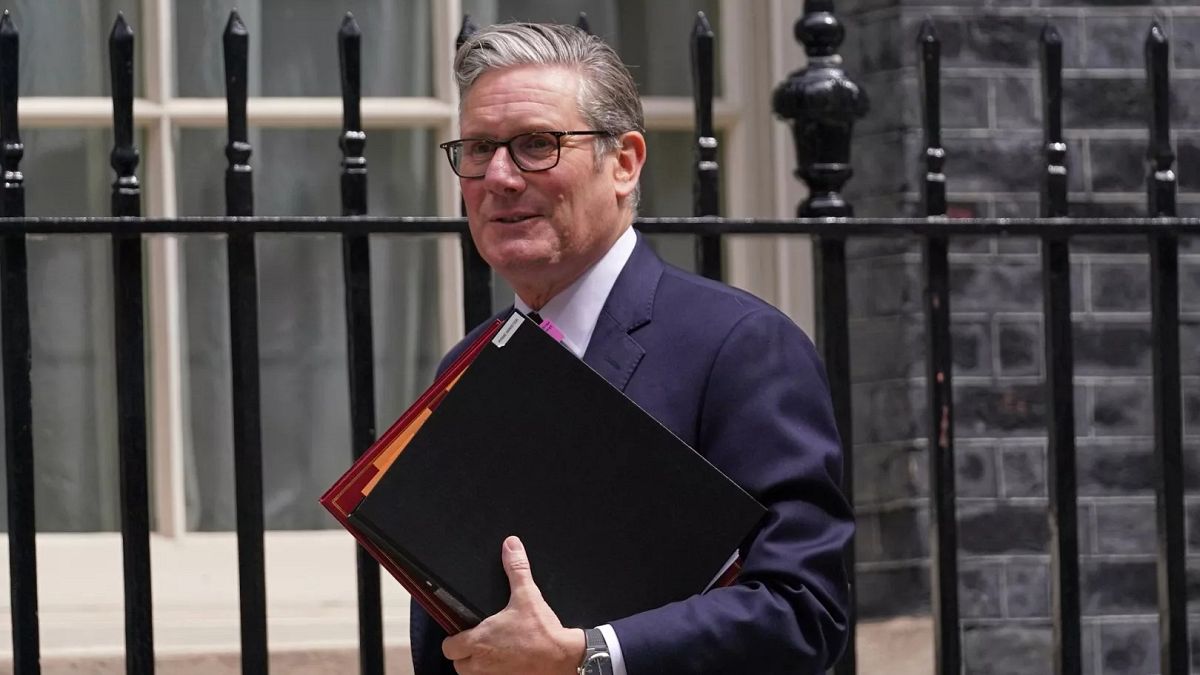

In a world where diplomacy often contends with critical challenges, recent developments have highlighted intense negotiations and shifting perspectives in global politics. These delicate conversations continue to shape the future, seeking resolutions against a backdrop of complex humanitarian and geopolitical landscapes.
In a notable stance, Keir Starmer, the leader of the Labour Party in the United Kingdom, reaffirmed the UK’s intent to recognize Palestine as an independent state if Israel does not agree to a ceasefire. This announcement follows France’s similar commitment under President Emmanuel Macron. The initiative emerges amidst growing concerns over the persistent humanitarian crisis in Gaza. The long-standing conflict has drawn widespread criticism, spotlighting images of dire conditions, including malnourished children and the tragic incidences of hunger-related deaths. These heart-rending images have sparked a global call for urgent diplomatic intervention.
In parallel to these European actions, a group of 40 Members of the European Parliament (MEPs) from across the political spectrum has urged the European Union to implement sanctions against Israel. This bipartisan cohort is pressing for decisive measures in response to what they characterize as atrocities in Gaza. Their call resonates with a growing sentiment across Europe that decisive action is necessary to address human suffering and channel efforts towards a peaceful resolution in the region.
Meanwhile, tensions in Southeast Asia have seen a fragile ceasefire negotiated between Thailand and Cambodia. The two nations, after enduring a decade of conflict, signed an immediate and unconditional truce under the mediation of Malaysia. This ceasefire aims to halt the clashes at their shared border, which has tragically claimed at least 38 lives and displaced over 300,000 individuals. Despite this agreement facilitated by Malaysian Prime Minister Anwar Ibrahim, new accusations have emerged, as Thailand claims a violation of the ceasefire by Cambodia just hours after it took effect. As both countries strive towards stabilization, the international community continues to encourage dialogue to secure long-lasting peace.
Adding to the geopolitical turbulence, Yemen’s Houthi rebels have issued a warning to increase attacks on ships with links to Israel. This declaration comes with a call for global pressure on Israel to cease its military operations in Gaza and lift its blockade, further heightening concerns about escalations that may affect regional security and international maritime routes.
Collectively, these scenarios highlight a tapestry of complex international interactions, where diplomacy attempts to calm storms of unrest and foster conditions for constructive dialogue. As global leaders persist in their efforts to address these multifaceted challenges, the hope for peace and stability remains a shared aspiration across borders. The journey to a harmonious future continues, informed by past lessons and guided by earnest contemporary dialogues.
Source: {link}
